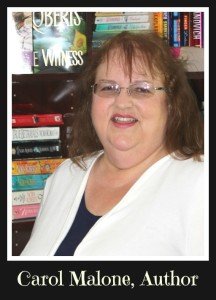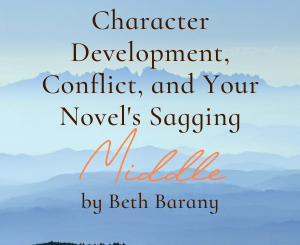Teach the Aspiring Author Through Editing by Carol Malone
Please welcome author and book coach in training Carol Malone. Today she’s sharing her article regarding personal book coaching verses writer education found on the web. Enjoy!
***
I’ve been doing a lot of editing lately, on my own books to get them ready for publication, and for others as part of my editor training.
I edit because I want to help aspiring authors perfect their craft. It’s more than line edits or finishing each sentence, it’s about teaching and inspiring writing students through effective editing.
How can I teach new writers the tricks of the fiction-writing trade?
That’s easy. Like with computer skills, I have to continue to learn the craft myself.
I have taken extensive workshops from Beth Barany and her School of Fiction. She helps many other writers with workshops, chats, calls, webinars, and personal consultations to aid the writing journey.
Now it’s my turn to give back to other writers who are traveling the same path as I.
As I’ve taken many steps along my teaching/editor training and edited a lot of stories from first-time novelists, I’ve noticed many issues. Many can be avoided with some education and I don’t mean necessarily from the academic world, although that’s great if you can afford it. Yet out there in cyberspace, there are literally zillions of great websites that teach writing.
I recently needed to find what an old editor called my “trope” words—those words I love and overuse in my manuscripts. In my latest and just completed 70,000 word novel, I used the word “like” 436 times and the word “that” 546 times. Scheezsh. Unbelievable. I wondered how I could get my Word program to point out all those words. As I read through my manuscript during my editing passes, I don’t always catch them.
So I went to my “White Seer Stone,” as my husband calls Google and asked, “How to highlight overused words in Microsoft Word,” and voila, dozens of website suggestions popped up.
Now I must warn you, not all websites are created equal and some are not legit, so BEWARE!
But I found a couple that were spot on.
One in particular had a post titled, “Novelists – how to use MS Word as a powerful editing tool,” a post written by author, Maria Grace, on the blog “THE RIDDLE OF WRITING” by Deborah Swift. I found the step-by-step instructions on how to highlight overused words to be of great importance and practiced using it on my own manuscript. It was amazing. My manuscript looked as though I’d allowed my great-grandnieces to color on the pages.
Aspiring authors have asked me how I learned how to SHOW and not TELL the emotions of a character because they had read a scene of mine and were impressed.
So I pointed them to Beth and her School, and to Laurie Sanders who teaches a number of workshops on Writing Love Scenes, Intensifying Emotion, and Vocabulary for Writing Emotion, and Deep Point of View.
Also, Writer’s Digest has a great article on “Showing vs. Telling in Your Writing” by Roseann Biederman. And so on.
You can spend literally weeks exploring and learning.
On Passive Voice
How does a new, or for that matter, any author avoid writing in the passive voice if that is not their objective?
How can we make our writing active and filled with tension and not passive and forgettable?
Mignon Fogarty, Grammar Girl, writes, “Passive voice isn’t wrong, but it’s often a poor way to present your thoughts,” in her article, “Active Voice Versus Passive Voice.” http://www.quickanddirtytips.com/education/grammar/active-voice-versus-passive-voice.
Some examples of Active vs. Passive sentences can be found at: http://examples.yourdictionary.com/examples-of-active-and-passive-voice.html
Lists of Lists
I especially love sites that act like brokers for all things writing.
One of my favorites for pointing the writer to any number of articles about writing is: http://blog.janicehardy.com/p/online-resources.html.
Writer’s Digest also has a great list of articles concerning the writing journey: http://www.writersdigest.com/?s=how+to+write&submit=.
Here’s a list of writing tip blogs and articles by the masters: https://www.writingclasses.com/toolbox/tips-masters/elmore-leonard-10-rules-for-good-writing.
On Query Letter Writing
Authors nearing the completion of their manuscripts, often ask about writing query letters—something most writers shy away from.
Since I haven’t submitted anything to an agent or a publishing house for consideration, I’m not the best person to ask advice about query letter writing. But I have my “White Seer Stone,” and I found a number of fabulous sites that give examples and make the writing of queries letters appear less daunting.
These are all great sites for writing the query letter:
http://alanrinzler.com/2010/01/hooks-that-snag-great-book-deals
http://agentqueryconnect.com/index.php?/topic/4577-query-that-got-me-my-agent-and-now-publisher/
http://www.eschlerediting.com/writing-a-killer-query-letter/
http://alanrinzler.com/2010/01/hooks-that-snag-great-book-deals/
http://mariavicente.com/post/95903667415/querying-tip-write-a-great-hook
http://blog.janicehardy.com/2008/02/query-letters.html
So you’re armed with the latest and greatest sites for writing that Google has to offer, how do you make all that information work for you?
There is nothing like the personal touch, or working with a coach/editor/teacher one-on-one.
Web articles are great and I’ve learned a lot from them, but there’s something reassuring, and confidence building to work with someone who has already been down the road ahead of you.
As a writer, it’s up to you when and how or if you’ll search out someone to work with.
Will you find someone who’ll guide you from writing to editing, and teach you the ins and outs of the writing guides without reading cold, hard facts from an article?
I’ve tried to go-it-alone, and found myself lost even after taking numerous workshops and reading lots of books.
Never discount the insight and inspiration of a motivational coach. Everybody loves to be cheered on to victory. Writers are no exception.
Good luck in your search for writing perfection. If you’d like a free consultation, just drop me a line. I love to share with people what to do.
***
About the Author
 An award winning novelist, Carol Malone writes romantic suspense, rocketing readers into the past to uncover a hard-fought happily-ever-after. Based in coastal California, when not hammering out new tales, Carol reads, watches sports, the Food Network or HGTV, or spends time with her author husband. She loves to connect with her readers on her website, Twitter, and on Facebook.
An award winning novelist, Carol Malone writes romantic suspense, rocketing readers into the past to uncover a hard-fought happily-ever-after. Based in coastal California, when not hammering out new tales, Carol reads, watches sports, the Food Network or HGTV, or spends time with her author husband. She loves to connect with her readers on her website, Twitter, and on Facebook.
Check out her books here:
Fight Card Romance: Ladies Night







